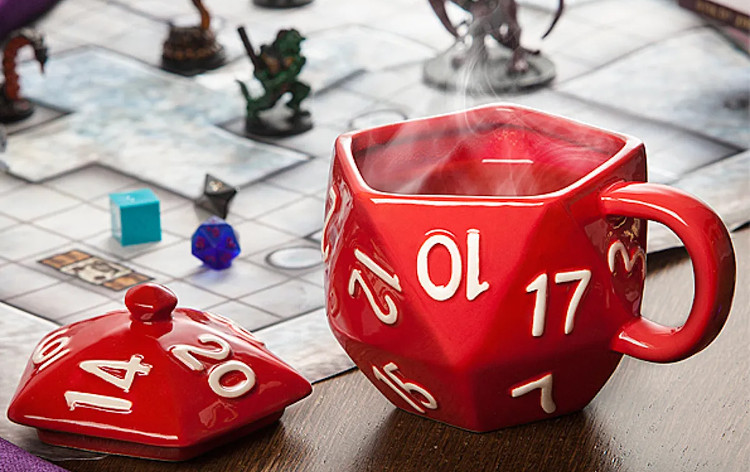As the great Sun Tzu (probably) would have said had his great strategic treatise been about roleplaying games and not the Art of War, “If you know your players and you know yourself, and you shall be successful in one hundred campaigns”.
In this (hypothetical fiction), by knowing one’s players the great Master Sun refers to knowing, anticipating, and managing one’s players’ expectations. There are a handful of skills, the mastery of which separates the truly talented or experienced GMs from the rest of us. Among these are improvisation, theatricality, and an inherent and unerring instinct for the balance of the game. I’ve written about some aspects of these in the past and others would make excellent fodder for discussion in the future. But it’s yet another quality that I want to talk about today. And that’s the management of player expectation.
I’ve talked a bit about player expectation before, in an article about what went terribly wrong with my Rise of the Runelords campaign. And if you’re new to the blog I’d suggest going back for a first-hand account of how such a disconnect between a GM and his players can derail an otherwise amazing story. The management of player expectation can mean the difference between a jaw-dropping, edge of the seat, narrative or a boring rehashed trope. It can be the difference between a group of players feeling demoralized and disappointed and a unified group of glorious heroes.
So what is player expectation? And how can a GM manage it, capitalize on it, and use it to his or her own ends?
Player expectation, is a concise way to talk about all the many multitudes of things that your players want to get out of your game. Players want to be heroes. They want to see their characters’ stories evolve. They want to slay beasties and score phat loot. Hopefully the following will help you get an idea for how to manage those expectations that your players bring to the table.
The first and probably most effective way to manage expectations is to share some of your own.
With my Runelords game, I was hoping to run a campaign that was gritty and bleak. I wanted to tell the story of a world that was minutes from midnight whose slimmest chance for salvation came at the hands of heroes who were barely up to the task. Not because they were weak or lacking, but because the feat was so great. Too bad I didn’t share this with my players, who wanted to tell the story of plucky would-be-gods on their way to be awesome at everything forever after. The End.
Obviously there’s a middle ground to be had. They type of story I wanted to tell had elements that could overlap and compliment elements of the story that they wanted to tell. But because I didn’t establish the sort of narrative I was looking to frame, the conversation where we suss out a common ground didn’t happen.
Take the opportunity of the beginning of a campaign, or a story arc, or even a single session to lay the foundations of what you, the GM, might expect for the future. It could be something as vague and far reaching as, “Hey, I’m thinking of running a C’thuluesque thriller set in Napoleonic France” or as specific and near-term as, “So for tonight, I’m thinking we go for a few hours, break for dinner, and then finish off with a big-bad combat.”
In either case, you can help moderate your players’ expectations by expressing some of your own.
The second most useful thing I can recommend is that you listen to your players. I know, obvious duck is obvious. But seriously. Listen to your players. You don’t necessarily have to come out and ask them what they want – although it can’t hurt. More often, though, you’ll find your players saying things like, “Hey wouldn’t it be cool if ______ turned out to be ______ all along?!” or, “You know the next time that we encounter ______ he’s going to have ________ with him!”
This is the time to keep your notebook ready. Because this is where you tap into the multitudinous power of the hivemind. Let’s face it. As the GM you’re technically all powerful. But rare is the situation where a group of players is consistently out-thought by a single GM. Accept it and embrace it. And pick up on player cues because when the thing happens just as they’d hoped (feared?) it makes your plot all the thicker and rewards your players for “paying attention” to the plot. This way you can sort of trick them into feeling good about their “deductive predictions.”
Recently, I was GMing a published one-shot for some new players. They were exploring a ruin and had managed to convince themselves that they were walking into a trap. They made painstakingly slow progress down the hall they were in, checking for traps every 5-ft. Finally, they get to the door. And lo and behold they find a trap! A poison needle hidden just next to the door handle. The module didn’t have any traps in it. In fact, all the spooky things they’d encountered thus far was merely window dressing. But they didn’t know that. And to continue on with the trapless dungeon would have been to trample all over my players’ expectations. But by throwing them a bone… well, needle… they got to feel like they anticipated a danger and circumvented it.
Managing player expectations is something that will get easier the more you get to know your group and the more experience you have running groups, the easier it will be to get a read on what players are hoping to get out of their game.
How do you feel you fare with your players and their needs and wants? Let me know in the comment section below or in the forums!





